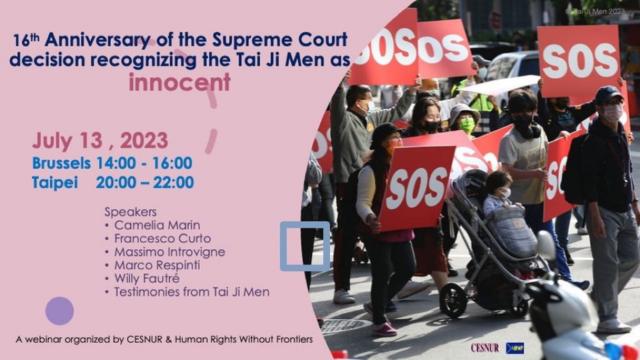On July 13, 2007, the Supreme Court of Taiwan found Tai Ji Men innocent of all charges. Yet, this landmark decision has not been fully implemented to this day.
by Daniela Bovolenta

On July 13, 2023, CESNUR and Human Rights Without Frontiers organized one of their bi-monthly webinars on the Tai Ji Men case, on the theme “16th Anniversary of the Supreme Court Decision Recognizing the Tai Ji Men as Innocent.”
Camelia Marin, deputy director of the NGO Soteria International, introduced the webinar, which commemorated the historical decision of Taiwan’ Supreme Court of July 13, 2007, recognizing the Tai Ji Men defendants innocent of all charges, including tax evasion. Marin summarized the history of the Tai Ji Men case, from the raid and the arrests by Prosecutor Hou Kuan-Jen in 1996 to the victory in 2007, and the harassment by tax authorities that continued even after 2007. She called what happened to Tai Ji Men “a case of administrative persecution and corruption,” and one that is not about taxes only but is about freedom of religion or belief.
Marin presented a video about the Swiss Mountain Villa, bought in 1995 by Dr. Hong and destined to be a large event venue and a self-cultivation center for Tai Ji Men, with facilities for hosting overseas dizi (disciples) when they would come to Taiwan. From 1997 to 2020, the property was first frozen and then used as a collateral in the fabricated tax case against Tai Ji Men. Only in 2020 was the Swiss Mountain Villa finally returned to Dr. Hong. By then, because of the problems that lasted for more than 23 years, the property was in a sad state of abandonment.
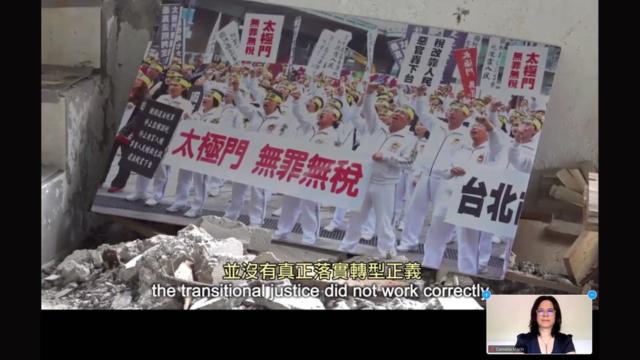
Marin then introduced the first two speakers, Francesco Curto, an Italian rights lawyer and president of the NGO Fedinsieme, which promotes and supports dialogue between different cultures and religions, and Massimo Introvigne, an Italian sociologist and the editor in chief of “Bitter Winter.”
Curto noted that we live in a time marked by a crisis affecting the notions of identity, values, and conscience. He expressed his admiration and support for Dr. Hong’s efforts promoting the primacy of conscience, but noted how those fighting for high values are often discriminated and persecuted by corrupt bureaucrats and politicians. Coming to the tax case, Curto noted that public administration agencies all over the world tend to maintain their acts without changing them even when they are clearly wrong. However, this tendency should be contrasted and public administration bodies, including tax agencies, should be persuaded to rectify their decisions, even when they are technically “final,” if it comes out they are clearly wrong. This is, Curto said, the core of the Tai Ji Men case. The National Taxation Bureau maintains a tax bills, for the year 1992, which is clearly fabricated and wrong, claiming that for this year a “final” decision has occurred. But even “final” decisions should be subject to correction when they violate the fundamental principles of law, justice, and democracy, Curto concluded.

Introvigne mentioned a recent conference in Taipei where he was a speaker on the Tai Ji Men case, in a session where Professor Tsai Cheng An, from Shih Chien University, also spoke. Tsai mentioned that in Taiwan the Ministry of Finance has issued more than 9,500 interpretation notes. These are not laws, but in fact function as laws and guide how the courts interpret tax laws. Introvigne commented that in this case tax authorities violate the democratic principle of the separation of powers because rather than merely applying the law as they should, they create law. This is a bad habit, which was also at work in the Tai Ji Men case after 2007. Rather than applying the law as the Supreme Court had interpreted it, the National Taxation Bureau “created” law as it deemed fit to harass Tai Ji Men.
The full video of the webinar.
Introvigne noted that in all countries tax authorities issue interpretation notes and letters. Sometimes, they are useful to clarify technical points of the laws difficult to understand for ordinary taxpayers. In other cases, they go beyond the law and try to expand the power of tax bureaucrats. Introvigne mentioned precedents in the United States and Italy where the Supreme Courts intervened to state that “interpretation” notes by tax authorities that created new laws rather than just explaining or interpreting existing statutes should be considered as null and void. The same, Introvigne concluded, should have happened in Taiwan.
Marco Respinti, an Italian journalist and scholar who serves as director-in-charge of “Bitter Winter,” chaired the second session. He opened it with a “message” celebrating the Tai Ji Men legal victory of 2007 and noting that it should have solved the Tai Ji Men case once and for all. However, tax authorities continued to treat the innocent Tai Ji Men Shifu (Grand Master) and dizi (disciples), whom the Supreme Court had declared totally innocent, as if they were guilty. Persecuting the innocent by falsely claiming they are guilty, Respinti noted, is the worst form of injustice.
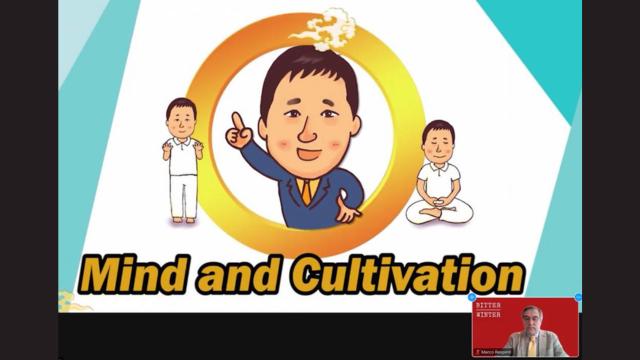
Respinti introduced a video presenting some fundamental teachings of Tai Ji Men about the practice of qigong, and the testimonies of five dizi. Sam Cho, a citizen journalist for tax and legal reform issues, said that the legal victory of Tai Ji Men 2007 gave hope to those who believed that for Taiwanese citizens defending themselves against accusations of tax evasion is impossible. The Supreme Court found that Tai Ji Men had not committed tax evasion. However, after this victory, tax authorities continued to harass Tai Ji Men, proving that persuading the National Taxation Bureau and the Administrative Enforcement Agency to respect the laws and the Supreme Court decisions remains very difficult. The Tai Ji Men case is not unique, Cho said. He mentioned as an example the case of Chien Yung-Chun, a “patent king” who was ruined by unjust taxation and died while vainly trying to obtain justice.
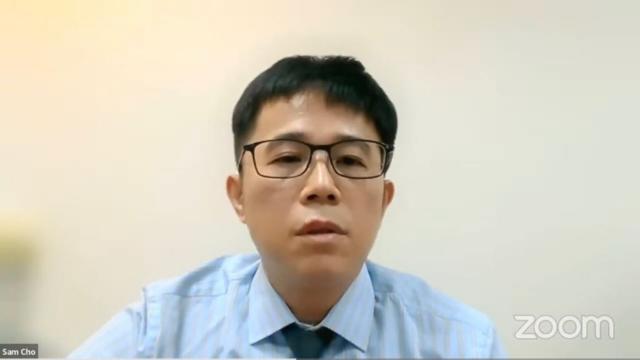
Lisa Lin, a media marketing executive, used her professional experience to reflect on the role of fake news and slander in the Tai Ji Men case. Since 1996, she said, fake news originally created by Prosecutor Hou Kuan-Jen, the man who started the Tai Ji Men case, have spread “like wildfire” and created considerable suffering. Lin offered as an example the case of her own family. Her grandparents were misled by the fake news and left Tai Ji Men, although they eventually understood the information they had been exposed to was false, and after some fifteen years came back. Those who were misled, Lin commented, were also victims of the Tai Ji Men case, not less than those who were actually persecuted. On the other hand, Lin has experience of how new technologies can be used to spread fake news but also accurate reporting. She is encouraged by the work of “Bitter Winter” and others who strive to tell the truth about the Tai Ji Men case, she concluded.

Pin Hsieh, a college student, reported that he started protesting for the Tai Ji Men case in 2010 at age six, even before he started primary school. Soon thereafter, he started noticing a contradiction between what he was taught in school, that Taiwan’s citizens can always take their human rights complaints to the authorities trusting that they will be resolved, and what was happening to Tai Ji Men. He found an answer to his questions in Dr. Hong’s teaching that evil laws implemented by good persons with conscience become good laws. Conversely, good laws implemented by evil persons without conscience become bad laws. Dr. Hong also taught Hsieh that “Tai Ji Men dizi have nothing to be afraid of.” They should calmly continue to fight for justice, comforted by the support of many Taiwanese and international academics and human rights experts.
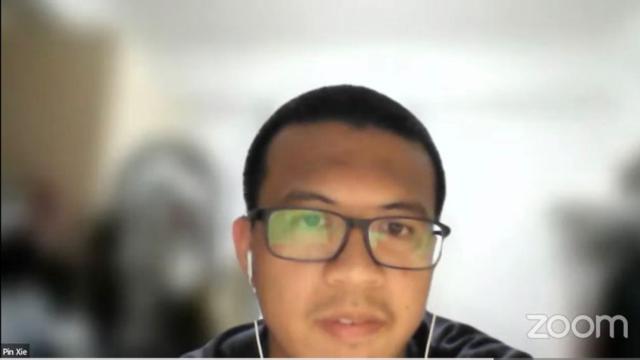
Andy Lin, a junior high school graduate, also shared his experience of protesting and holding signs in the streets, with good or bad weather, since he was very young, and his dissatisfaction on seeing that the problems of tax injustice were not mentioned in his school textbooks. However, he felt encouraged by the fact that not only international scholars but also simple passerby he met during his street activities on behalf of tax reform took time to learn more about the Tai Ji Men case and expressed their sympathy and support.
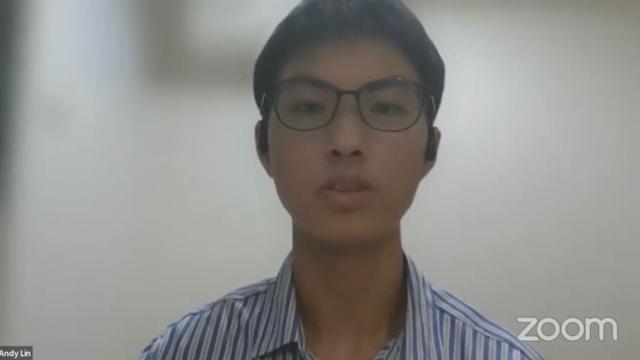
Larry Yang, a new college graduate, also grew up in a dizi family and became familiar with the Tai Ji Men case at a very young case. He could not understand why it could have occurred in a country calling itself democratic. Eventually, he understood from Dr. Hong that conscience is the key to understand both the good and bad behaviour of public servants, and that promoting conscience would also eventually help solving the Tai Ji Men case. Yang enthusiastically participated in the Movement of an Era of Conscience launched by Dr. Hong, and attended international events including the 2022 Conference of Chief Justices of the World in India. By going there, and by welcoming foreign scholars in Taiwan, he understood that many in the world share the same feelings and values. Eventually, he hopes they may make the world, and Taiwan, a better place.
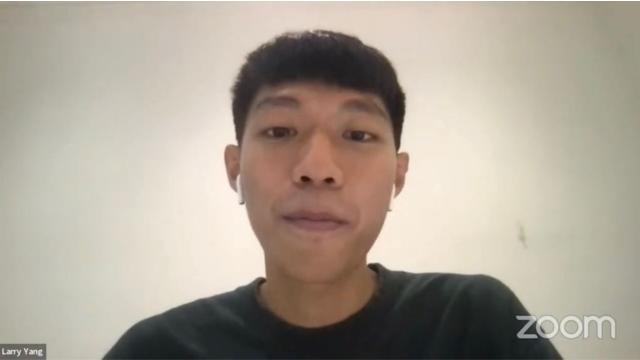
Willy Fautré, co-founder and director of Human Rights Without Frontiers, offered the conclusions of the webinar. He said he hesitates between “commemorating” or “celebrating” the 2007 Tai Ji Men victory. We should surely celebrate the bravery and courage of Tai Ji Men Shifu and dizi who, through a bumpy road, achieved the 2007 result. On the other hand, unfortunately we cannot “celebrate” the 2007 Supreme Court decision as the final solution of the Tai Ji Men case. It should have been the final word on the case, but it wasn’t, as tax authorities refused to follow it. So while we “commemorate” the landmark decision of 2007, we should still continue our advocacy work so that we can one day “celebrate” a final and long overdue solution of the Tai Ji Men case.

The event concluded with a musical video “We Can Change the World,” featuring beautiful music and lyrics by Dr. Hong and aptly expressing the hope that by following our heart and spreading love and hope we can indeed overcome all challenges and change our planet.
Source: Bitter Winter

